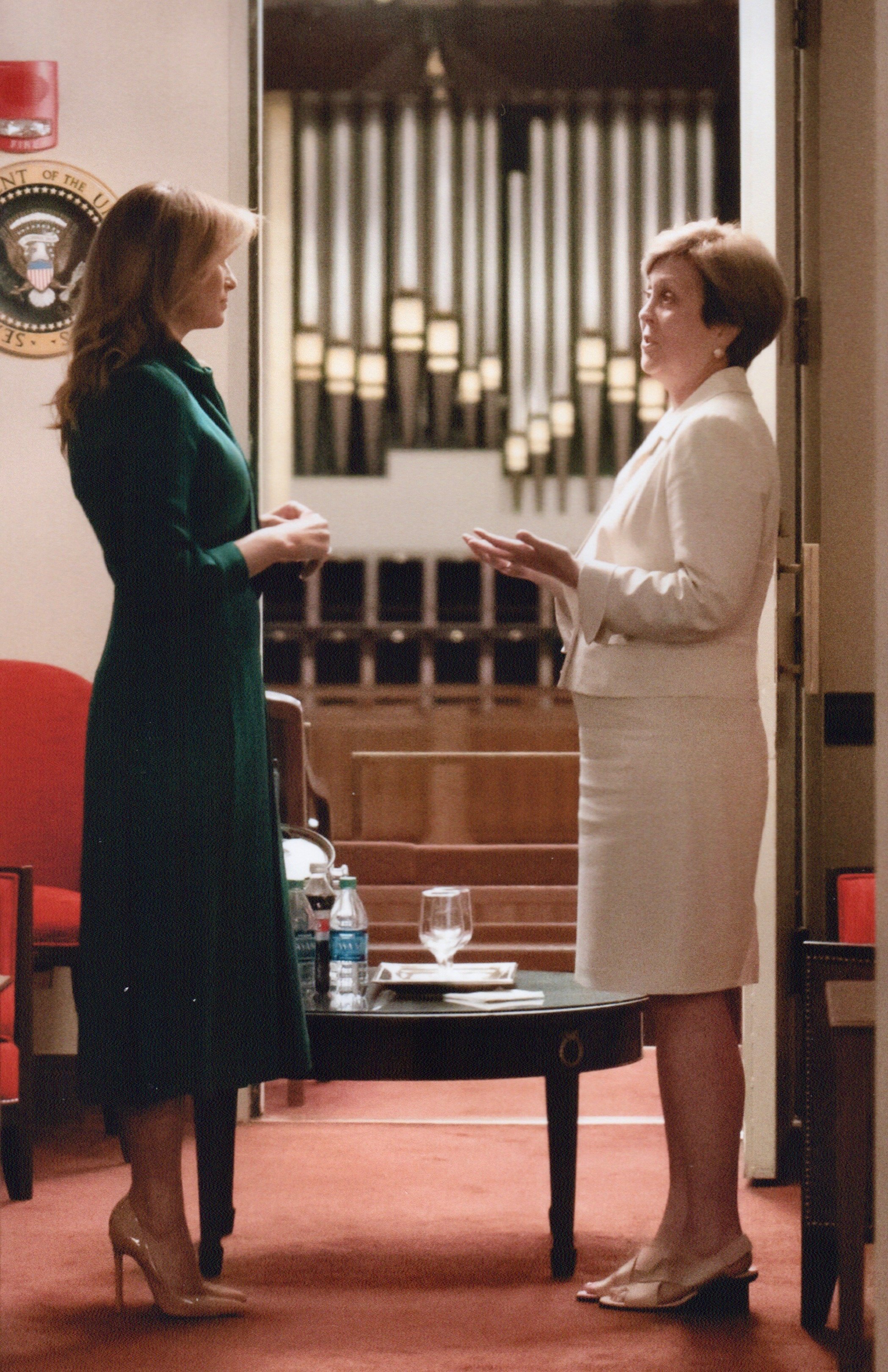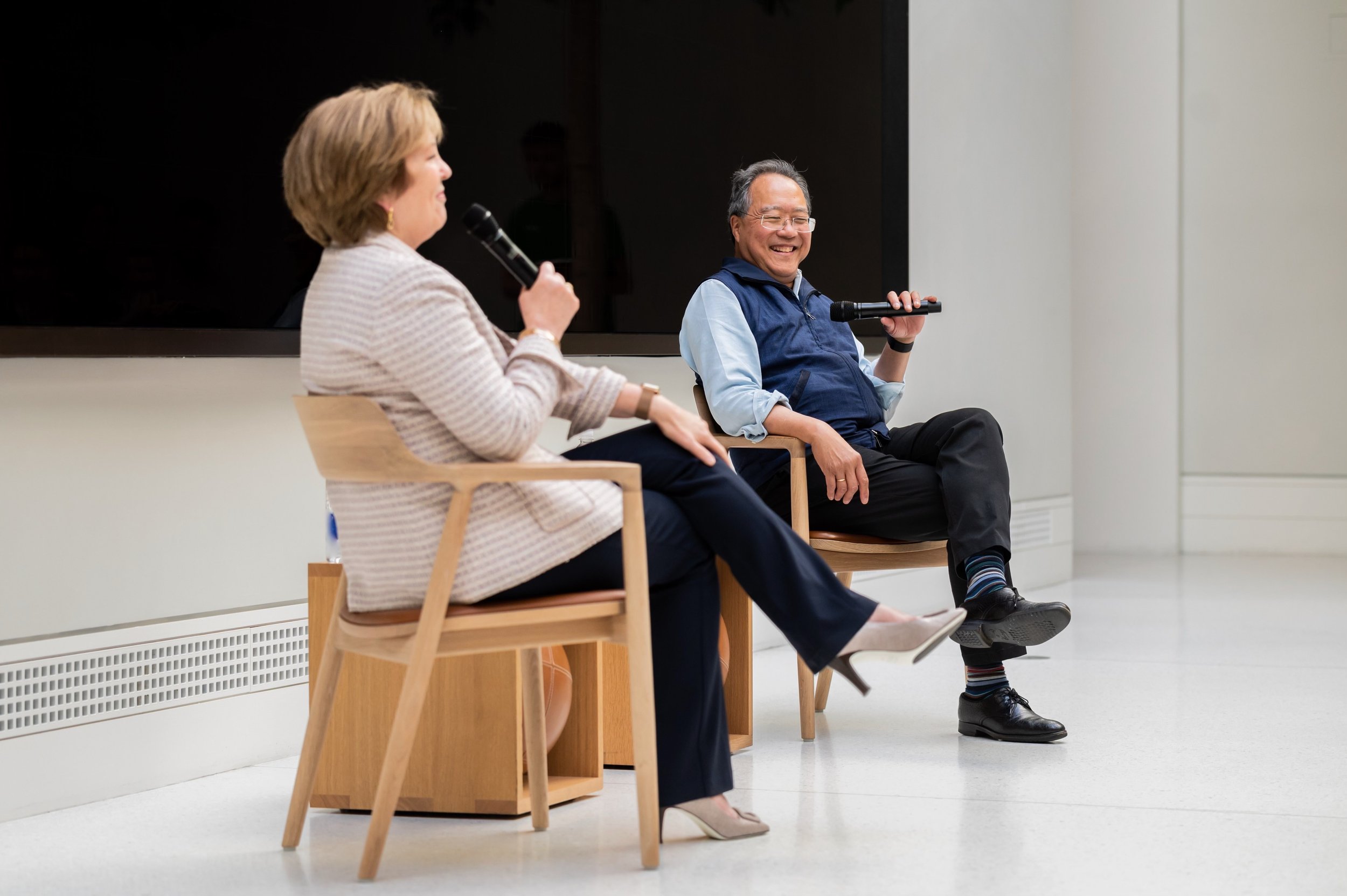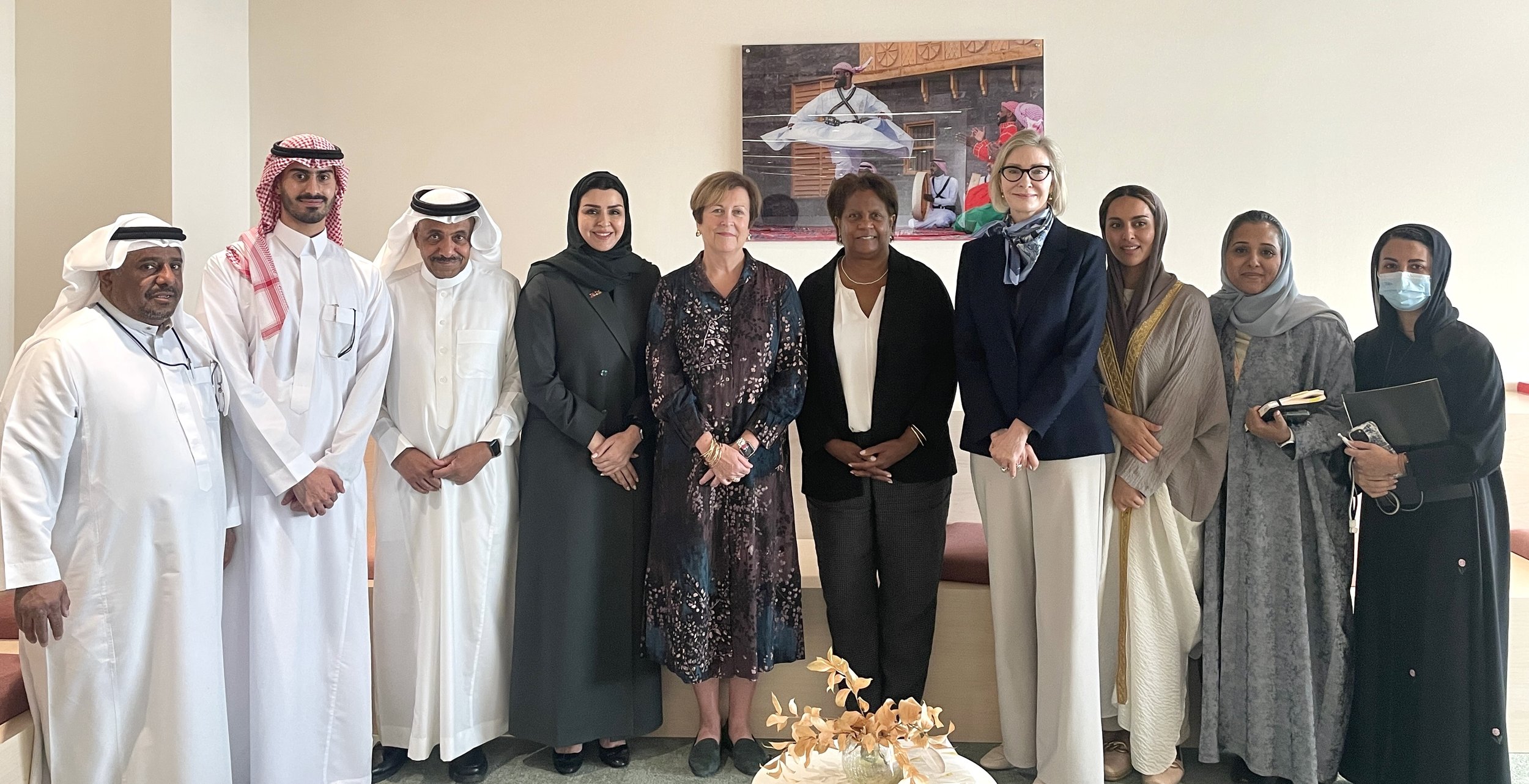In her nearly five decades as a non-profit leader, Deborah Rutter has demonstrated her expertise in defining and advancing the essential components of successful and sustainable organizations. It’s about driving operational excellence in all areas, expanding the reach and impact of mission-driven enterprises, and creating cultures of trust and accountability through rigorous financial stewardship.
“As managers and administrators, we have an obligation to be as good at what we do as those whose art we celebrate and present. In doing so, we are both curators of transformative experiences and co-creators with artists—enabling individuals, communities, and society as a whole to reap the full benefits of their creative insights and remarkable talent.”
—Deborah F. Rutter
A Decade of Transformative Leadership
John F. Kennedy Center for the Performing Arts
Financial Stewardship and Operational Excellence
Accelerated fundraising efforts to create the REACH through the Building the Future campaign. Initially conceived of as a $150 million campaign, Building the Future (which had $90 million secured upon Deborah’s arrival) successfully grew to $250 million all through private donations, allowing for the full design, construction and community-wide opening celebration of the REACH.
Launched the Sustainability Fund to ensure financial stability during years of budget shortfalls.
Grew the existing endowment from $100 million to $162 million, while launching a campaign to grow the Center’s endowment to $250 million. As part of the campaign, secured over $55 million in new gifts and pledges with over $50 million in active solicitations upon departure.
Established the Kennedy Center Foundation, a separate fundraising entity expanding the Center’s ability to engage with national and international philanthropists. Expanded the Sustainability Fund post-pandemic to address budget variability on a seasonal basis.
Introduced rigorous financial controls over spending and review of pricing and spending, resulting in increased parking and concession fees, space rentals, licensing fees, and other revenue positive initiatives.
Adopted the use of UKG and Sage—best-in-class workforce management and budgeting tools. Created the first Human Resources division to support employee development and satisfaction. Modernized work policies and procedures
Launched a strategic planning process and robust governance model to include formation of key committees and Board reporting.
Redefined affiliate agreements with the National Symphony Orchestra and Washington National Opera in order to support artistic growth and independence while managing the Center’s financial subsidy.
Institutional Expansion
Fulfilled the planning, design, construction and opening of the REACH (September 2019) a 21st century cultural campus and arts incubator, with 72,000 sq. ft. of performance space and 130,000 sq. ft. of outdoor green space to accommodate an increased number of festivals, exhibitions and community impact initiatives. Opening festivities included over 1000 artists and over 500 free public events.
Established The Club at Studio K to showcase the very best in contemporary music and culture and present rising stars and highly celebrated artists working in the genres of comedy, contemporary music, Hip Hop, jazz, and new music in an intimate setting.
Created the 7500 sq. ft. exhibition space and permanent exhibit — John F. Kennedy: Art and Ideals — which explores the 35th president’s appreciation and promotion of the arts and why the Kennedy Center came to be the living memorial to him and his ideals.
Led the renovation and re-opening of the Kennedy Center’s Terrace Theaterwhich hosts up to 180 performances annually, including music, jazz, dance, film, lectures and more. It also serves as a primary space within which the Center welcomes local arts groups and key artistic constituents.
Program Expansion & Social Impact
Expanded core programming to encompass comedy, hip hop, genre bending events, book readings and lectures, broader Pops programming, including country and folk, as well as an emphasis on new classical music.
Launched evolution of the ‘community engagement model’ to Social Impact — aimed at developing and implementing strategies and projects that positively influence creative communities locally and nationally. Significantly increased the Center’s engagement with and support of local and emerging artists through programs like the Culture Caucus, Citizen Artist Fellows, Office Hours, and the Local Theatre Residency.
Introduced Broadway Center Stage, a series of Kennedy Center produced musical revivals and new productions bringing the brightest Broadway stars to audiences in Washington, D.C. for limited-time engagements. Spamalot, a 2023 BCS production transferred to Broadway for a Tony Award-winning run, and national tour.
Launched Arts & Wellbeing at the Kennedy Center — an expanded focus on the intersection of art, science, and personal and communal health, growing out of the Sound Health Network, which was initially conceived in collaboration with Renée Fleming, The National Institutes of Health, and the National Endowment for the Arts.
As part of the REACH, opened the Moonshot Studio — the Center’s first publicly available, free ‘maker’s space’ and learning lab — where guests of all ages could participate in artistic activities tied to the Center’s programming and the legacy of President Kennedy. Since its opening, nearly 30,000 visitors have participated in Moonshot Studio activities.
Established the Hip Hop Culture Council to create new pathways and deepen public knowledge of Hip Hop and strengthen the burgeoning Hip Hop Culture program at the Kennedy Center. Q-Tip appointed Artistic Advisor.
Initiated formal Artistic Advisory collaborations to ensure artist-centric programming. Artistic Advisors and relationships cultivated by Deborah include Yo-Yo Ma, Renée Fleming, Ben Folds, Mo Willems, Jacqueline Woodson,Gianandrea Noseda, Q-Tip, Jennifer Koh, Jason Moran, Mason Bates, Hope Boykin, Steven Reineke, and Carlos Simon.
Expanded and modernized the Kennedy Center’s multimedia and digital capabilities to enable online distribution of its performances during the 18-month pandemic closure. Launched NEXT at the Kennedy Center, a new program with PBS featuring performances from across the Kennedy Center’s stages mixed with behind-the-scenes content and intimate artist profiles.
Expanded Cultural Diplomacy collaborations through focused programmatic festivals and collaborations with international embassies, organizations, and artists, including international festivals highlighting the cultures and art of Iberia, Ireland, and Cuba, among others, plus Lunar New Year celebrations, cultural family days, the Ukrainian Freedom Orchestra, and the Afghan Youth Orchestra.
Enhanced cultural impact of the Kennedy Center’s marquee event, the Kennedy Center Honors, through new production partners and marketing strategies. Ensured broad representation of all types of art and artists through the creation of the Special Honors Advisory Committee, drawing Honoree input from artists, institutional stakeholders, and the public. Elevated the Mark Twain Prize for American Humor to the premiere award for comedy through new production and broadcast partnerships.
Oversaw an 18-month celebration of the centennial of President Kennedy, introducing five enduring ideals often ascribed to the President - Freedom, Courage, Justice, Service, and Gratitude. This served to re-established the Center’s commitment to fulfilling its role as the living memorial to the 35th President.
Launched new ways for the public to engage with the Center digitally, including an expanded YouTube channel and Digital Stage—an online database of performances and cinematic-quality features viewed by hundreds of millions of patrons. Introduced virtual field trips, enabling tens of thousands students and educators to participate virtually in Kennedy Center young audience programming.










